Best gravel bikes under $2000
For a budget around $2,000 you can get a great gravel bike deal. We explore the options
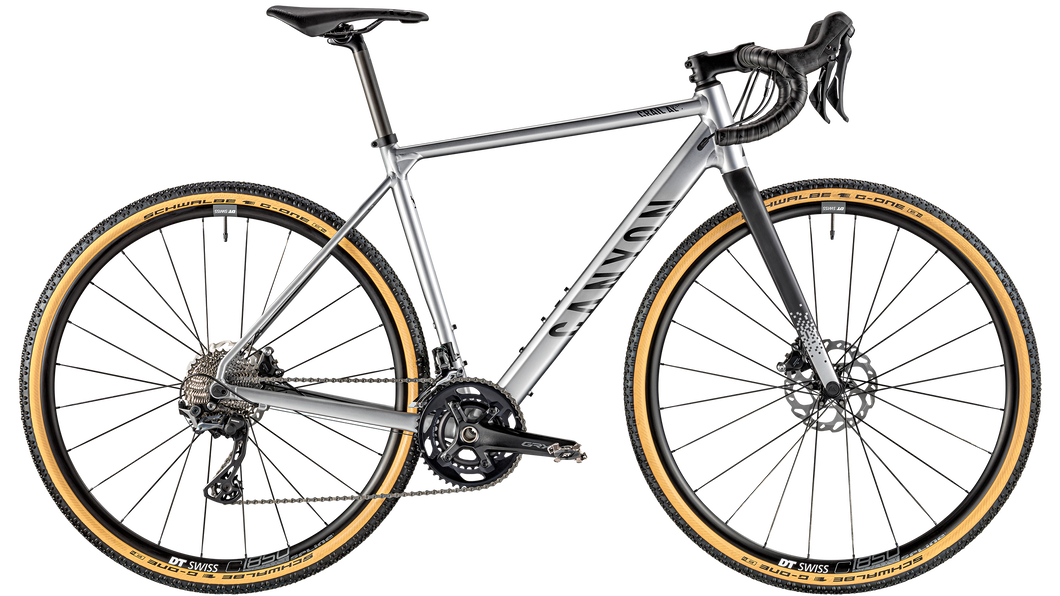
If you have a reasonable budget, there are some excellent gravel bikes available. With more riders venturing off-road, the gravel bike movement is showing no signs of decreased demand.
In reaction, the cycling industry is producing better gravel bike product ranges, with more price points and specifications choices than ever before.
What is the best gravel bike you can buy under $2,000? We have done the research for you and present a selection of superior drop bar bikes, that are ideal for rolling those big mileages off-road.
- Best gravel bikes: drop bar offroaders for racing and exploring
- Cheap gravel bikes: gravel bikes under $1,500
- Best gravel tires
- Best tubeless tyre sealant for mountain bike, gravel and road
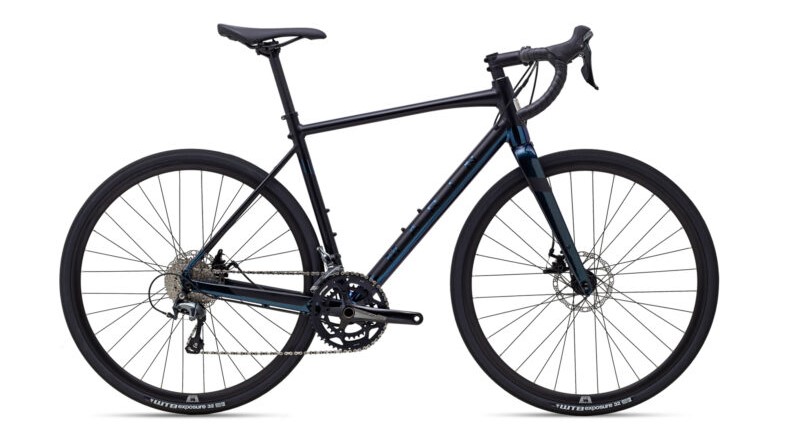
Marin Gestalt 2
Specifications
Reasons to buy
Reasons to avoid
Marin’s Gestalt is designed as an all-terrain endurance riding frameset. Capable on tarmac and comfortable when you transition to gravel, it is not made for forest singletrack, but instead purposed for long-distance gravel touring.
A lightweight 6061-grade aluminum frame is steered by a carbon-fiber fork, with both wheels secured in place by thru-axles. Internal cable routing not only keeps the Gestalt frame pleasingly uncluttered in appearance, but it also makes attaching frame bags much easier, for those bike packing adventures. The Gestalt has fender and rack mounts too.
Converting rider power output, to forward momentum, is a Shimano 2x10 drivetrain, with a 50/34T chainring combination connecting to an 11/34T cassette. The generous spread of ratios is sure to never find you without an appropriate gear, no matter what the terrain gradient.
Four of the six Gestalt frame sizes are built with a 72-degree head angle, which means a relatively upright riding position, well suited to long endurance rides, at a leisurely pace, on gravel.
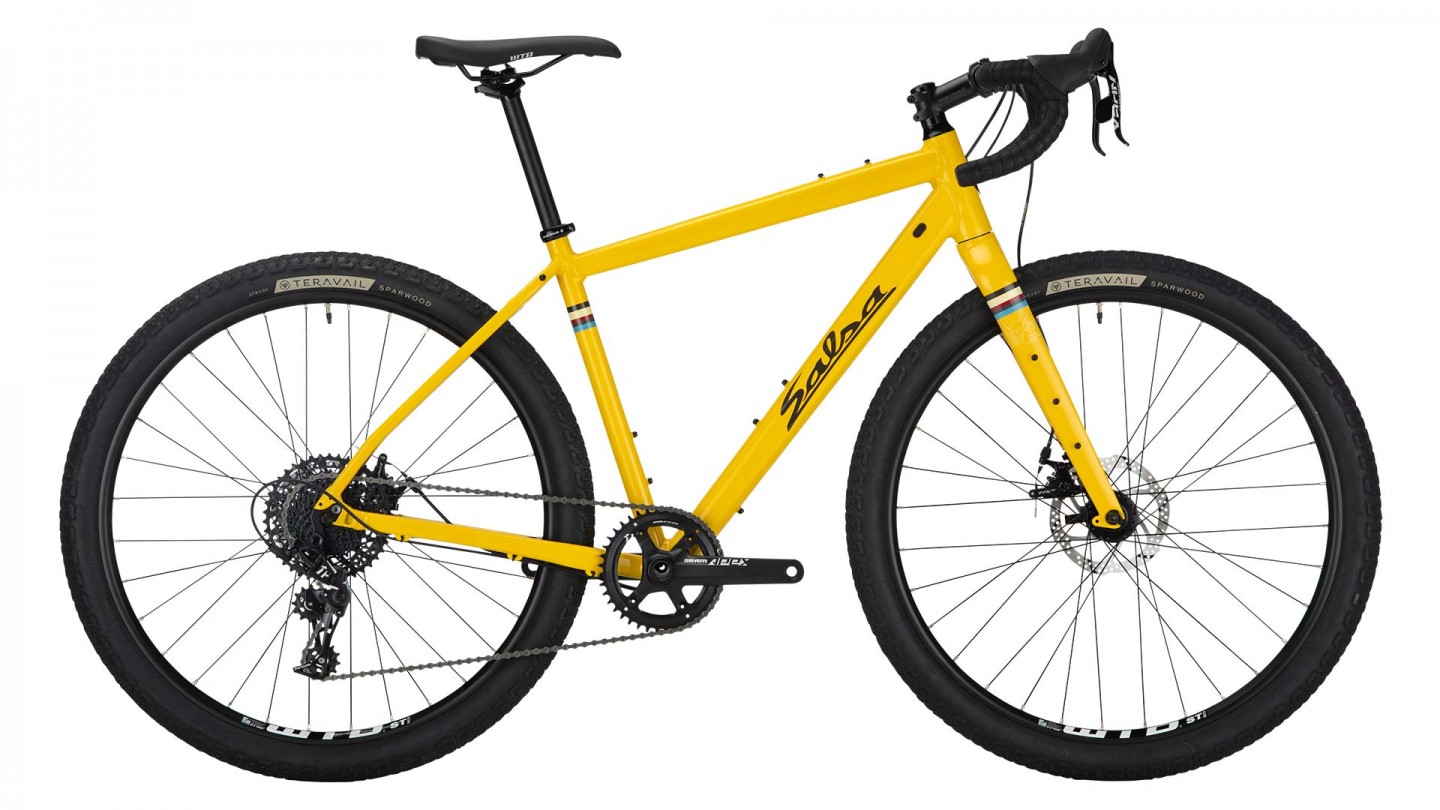
Salsa Journeyman Apex 1 650b
Specifications
Reasons to buy
Reasons to avoid
Salsa has a proven gravel touring bike pedigree. The Minnesotan bike brand has been building gravel touring frames for many years.
With the immense increase in demand for gravel bikes, Salasa has diversified its product portfolio, and one of the brand’s most convincing options is the Journeyman.
Designed to run either 700c or 650b wheels, the Journeyman can be configured for endurance rolling efficiency with those 700c tires, or offer superior ride quality and small-bump compliance, when equipped with 2.1in tires in the 650b wheel size.
Salsa has sensibly chosen WTB’s i23 wheels for its Journeyman, which offer a wide rim to support tire casings, but unfortunately, the frame's rear end does not feature a thru-axle. The bike’s geometry is a combination of Salsa’s Vaya and Warbird, with all frame sizes running 50mm fork offsets and steering via a 70.5-degree head angle.
Salsa’s touring bike legacy is evident in the Journeyman’s carbon-fiber fork design, which features both fender eyelets and low-rack mounts. There are also top tube bolt mounts and adequate attachment points for racks on the rear triangle. If you wish to tour with your gravel bike, the Journey won’t disappoint.
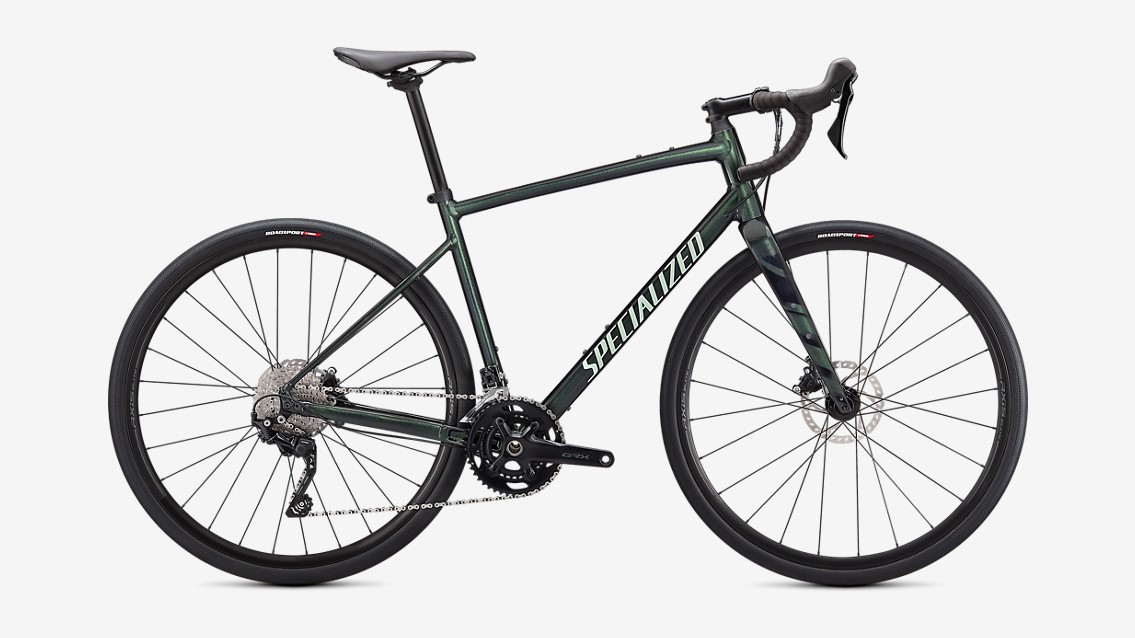
Specialized Diverge Elite E5
Specifications
Reasons to buy
Reasons to avoid
From the bike brand which has a deep history in the original off-road exploration rides north of San Fransisco, you would expect some stellar gravel bike options from Specialized.
The Specialized Diverge Elite E5, boasts a premium aluminum frame, steering with Specialized’s FACT-carbon material fork. Feature thru-axles at both ends the Diverge Elite E5 frame has good lateral stiffness and although its head angle is steeper than some rivals, the bottom bracket is low, aiding stability through those fast gravel road sweeps.
Although it rolls 700x35c tires as a factory build, Specialized engineers have ensured that you have the option to fit much larger rubber if you wish. The Diverge Elite E5’s frame and fork speciation will accommodate a 47mm width tire on a 700 rim, or a 2.1in on 650b wheels, if you desire the additional traction and ride comfort that larger tires deliver.
The build specification uses Shimano’s GRX400 group as its mechanical foundation, configured 2x10, with an 11-36T cassette and hydraulic brakes.
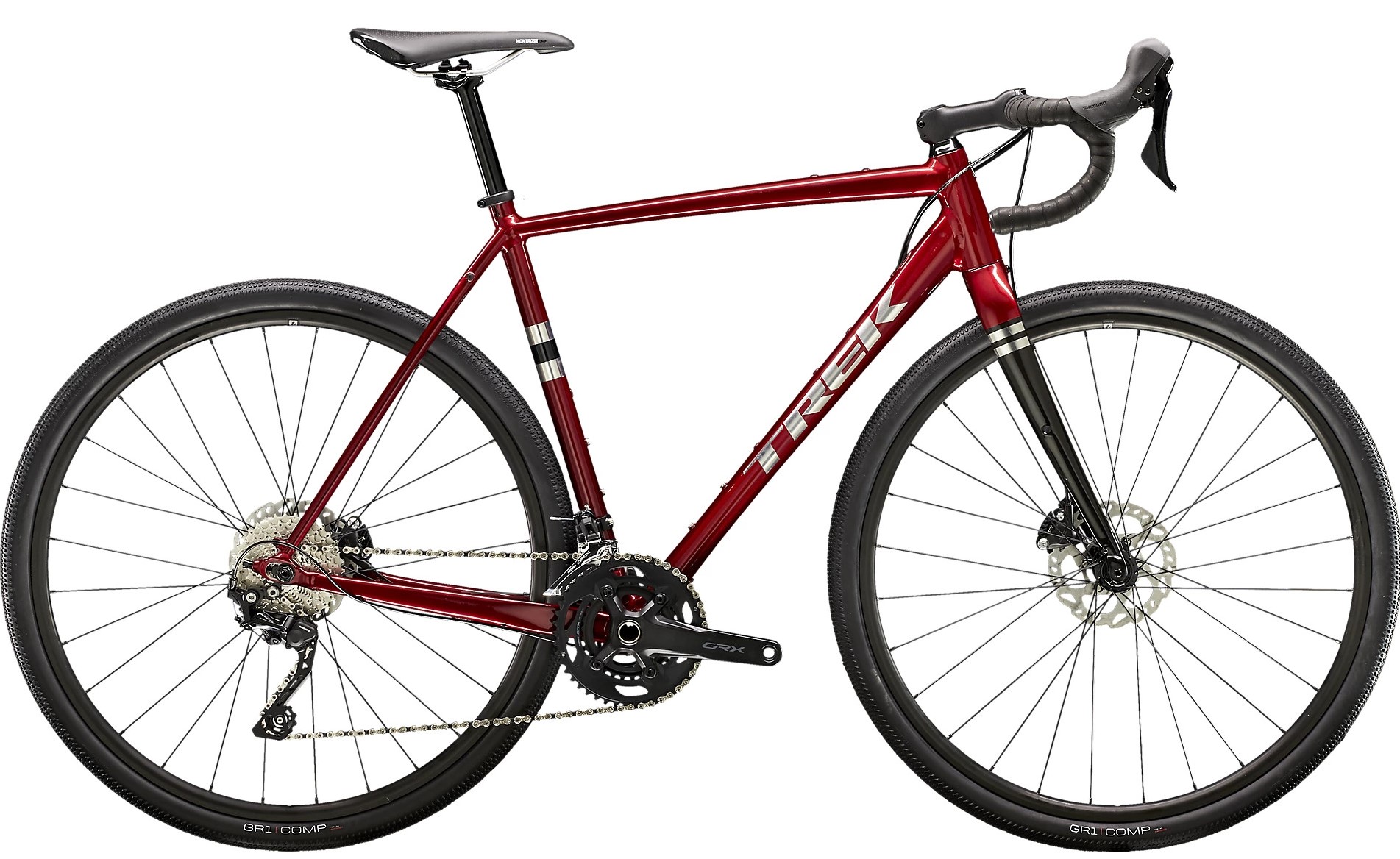
Trek Checkpoint
Specifications
Reasons to buy
Reasons to avoid
Trek’s Checkpoint ALR range is a good example of a premium aluminum frame grade bike. Constructed from Trek’s 300-series aluminum tube portfolio, the Checkpoint ALR 4's frame varies in the diameter and profile of its tubes, to create pleasant ride quality off-road.
Beyond the proven Shimano GRX400 groupset, Trek’s industrial designers have also added some very neat features to the Checkpoint ALR 4 frame. You’ll find flat-mount brakes, which are not only more elegant in appearance but also save weight, by making the use of adaptors unnecessary.
For those Checkpoint riders who might consider running their bikes single speed, there is a horizontally sliding rear axle mount to facilitate that. If you enjoy the additional stability of a longer wheelbase, especially on loose gravel road descents, the horizontally sliding dropouts serve a great geometry adjustment function.
If you are planning to do some very adventurous gravel bike riding, lights and navigational head units become a real consideration. Trek has you covered, with its brilliant Blendr stem, which is engineered to allow for an assortment of riding accessories to be directly clipped to the cockpit.
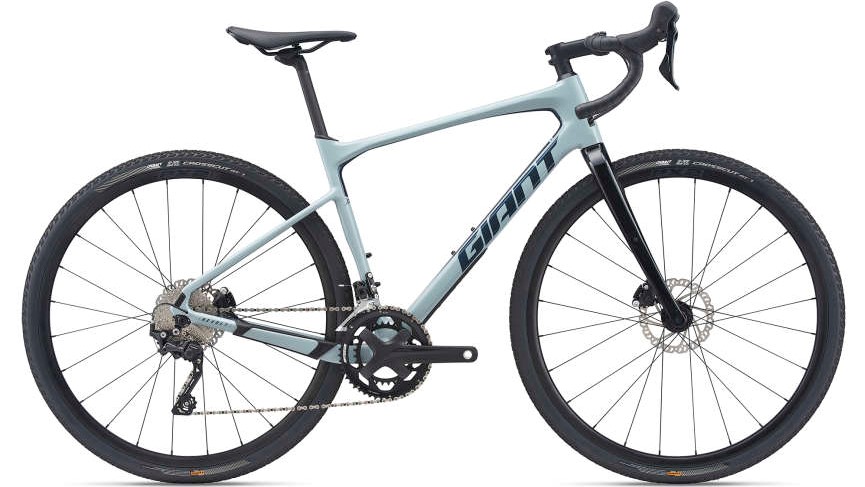
Giant Revolt Advanced 3
Specifications
Reasons to buy
Reasons to avoid
Can you get a carbon-fiber gravel bike for $2,000? Giant certainly thinks so and its Revolt Advanced 3 is evidence of the face.
The sleek lines of its carbon-fiber frame and components hide the quality of compliance engineering with this Giant gravel bike. Carbon-fibre has excellent vibration absorption properties and Giant engineers have optimized this, both with the Revolt’s frame and touchpoints.
Fibers are orientated in such a way that they allow for superior vertical compliance, and not only in the Revolt’s frame. Its seatpost and handlebar also feature Giant’s D-Fuse composite technology, which can deliver up to a 10%per cent reduction in terrain buzz.
Mostly built with Giant’s house brand components, including its P-X2 wheelset, the Revolt Advanced 3 offers incredible value, with all the lightweight appeal of carbon-fiber.
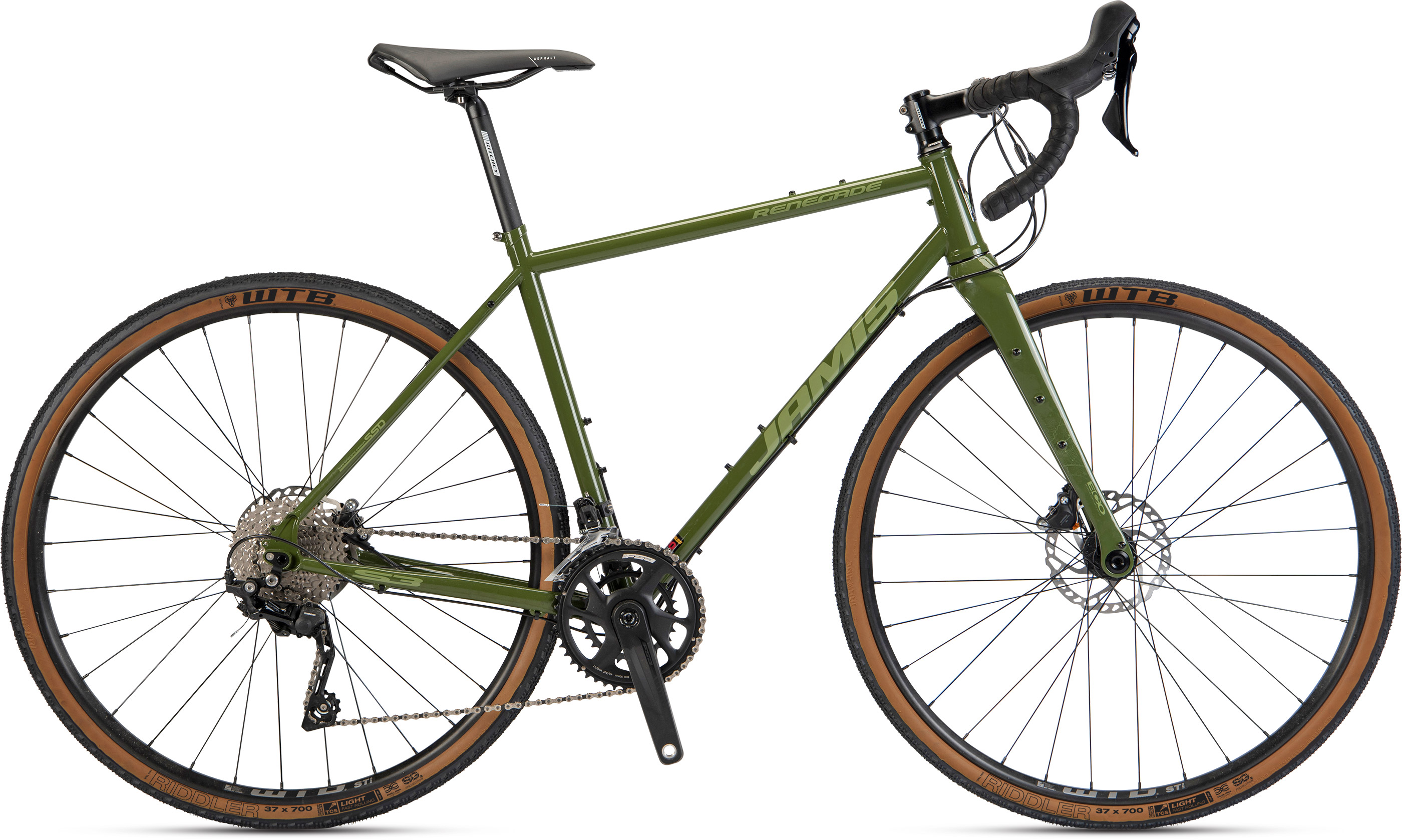
Jamis Renegade S3
Specifications
Reasons to buy
Reasons to avoid
Traditionalist gravel bike riders prefer the feel of steel and on a Jamis Renegade S3, you’ll be sitting atop some fine Reynold 520 tubing.
Beyond the classic thin-tube aesthetic, the Renegade’s double-butted Reynold 520 specification construction offers wonderful vibration absorption and ride quality. Jamis has paired the steel frame with a composite front fork, which features here water bottle eyelets and a low-rider rack mount.
With thru-axles holding those WTB ST i23 wheel in place, lateral flex is not an issue, even if you are descending a particularly rough section of fire road.
For those gravel bikers who like the traditional steel construction, but also value the utility of a dropper seatpost, the Renegade S3 has routing for a 27.2mm dropper.

Canyon Grail 7
Specifications
Reasons to buy
Reasons to avoid
The German brand has a gorgeous smooth weld aluminum gravel bike frame, in its Grail 7. With its raw polished finish and tidy internal cable routing, the Grail 7 looks great, especially rolling those tan wall Schwalbe tires – which add some contrast to the bike overall color scheme.
Product planners for the Grail 7 have cherry picked some outstanding components. Using Shimano’s latest GRX600 group, the Grail 7 turns an 11-34T cassette with a 46/30 chainring combination on the crankset.
Rolling the Grail 7 along are DT Swiss C 1850 Spline wheels, with a choice of either 700c or 650b diameters. Both wheel size options use the same 23mm internal diameter rim profile, which has been proved to be an ideal width for gravel bike riding, allowing those Schwalbe G-One Bite tires great support. With tread blocks that are deeply siped, these G-One Bites manage to find traction on even the trickest roots or rocky sections of trail.
Although the Grail 7 might have a premium aluminum frame and rims, Canyon’s product people have managed to add carbon-fiber where it matters, without escalating the price beyond a reasonable budget. The fork is carbon and so is Grail 7’s seat post, which has a Selle Italia X3 perched atop, guaranteed to deliver excellent off-road ride comfort.
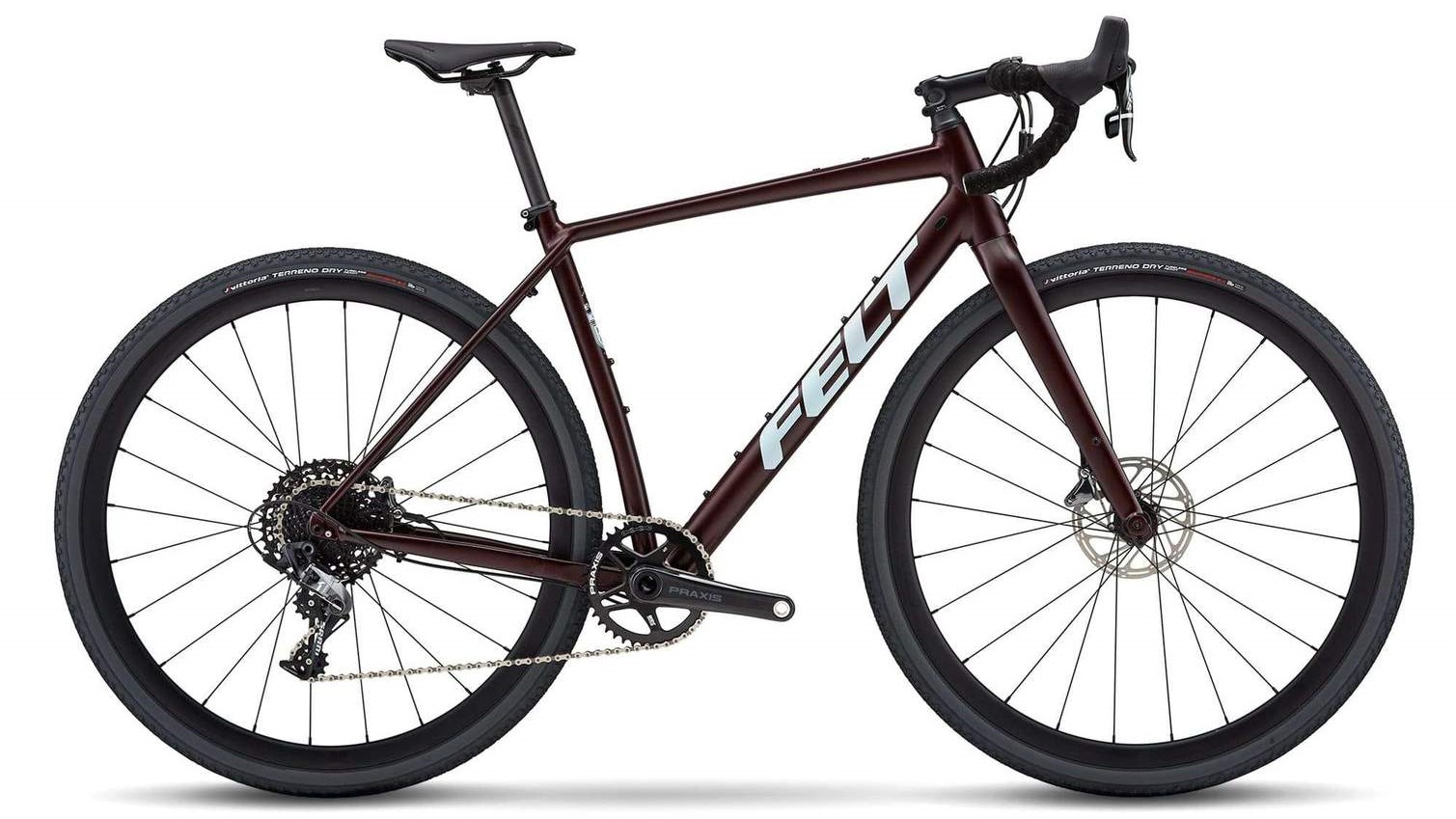
Felt Breed 30
Specifications
Reasons to buy
Reasons to avoid
The entry-level Breed manages to sneak below our $2000 price ceiling and offers a lot. Felt’s industrial designers have managed to shape the bike’s rear triangle and fork blades, with a generous amount of tire clearance.
Not only can the Breed 30 run both the 650b and 700c wheel sizes, but it offers gravel riders the option to use large volume tires, without the risk of mud clogging or frame rub. If you prefer 650b tires, Felt’s Breed 30 will clear 2.1in rubber, whilst up to 45mm tires can be used, if you are rolling 700c wheels.
There is no such thing as a short weekend gravel ride and Felt allows its Breed 30 customers the freedom of adventure, without any spares or nutritional stowage anxiety. The frame has bolt mounts on the top tube for accommodating a Bento box.
Bottom brackets work hard for a living on gravel bikes, risking environmental contaminants from fine dust or abrasive mud, on off-road routes. Felt’s solution, in terms of durability, creak prevention and overall frame stiffness, is to use the T47 standard bottom bracket for its Breed 30.
Everything you need to know about a $2000 gravel bike
Why trust BikePerfect
1. Brakes
At this price point, you can’t settle for mechanical disc brakes. Your gravel bike must have hydraulic actuation, delivering superior stopping power, especially on loose surfaces.
Hydraulic brakes require less rider input to decelerate your gravel bike, reducing hand fatigue and allowing for better – and safer – brake modulation. Larger riders should consider running 160mm rear rotors, instead of the more fashionable 140mm fitment on most gravel bikes.
2. Frame material
On our list of great gravel bikes under $2000, all three frame materials are available: aluminum, steel and carbon-fiber. Most gravel bikes in this segment are aluminum, with brands applying specific tube profiles to improve ride quality on rough road off-road surfaces.
Which is best? A carbon-fiber bike is always desirable, but don’t underestimate the excellent vibration damping and durability of steel. If you are going to add some frame bags to your gravel bike for the occasional multiday adventure ride, you might find steel superior, as carbon-fiber tubes which have seen their laminate surface rubbed through, are expensive to repair.
3. Bigger tires are better
Larger volume tires improve all aspects of gravel biking, as they allow for lower pressures, which in turn deliver more grip for braking and cornering. A larger tire operating at a lower pressure also absorbs terrain better, lowering your fatigue threshold on a long gravel ride.
Prioritize gravel bikes in the sub-$2000 segment which have large tubeless tires, seated on wide rims, preferably in the 21-23mm internal diameter range. This will give the best gravel riding tire and wheelset experience.
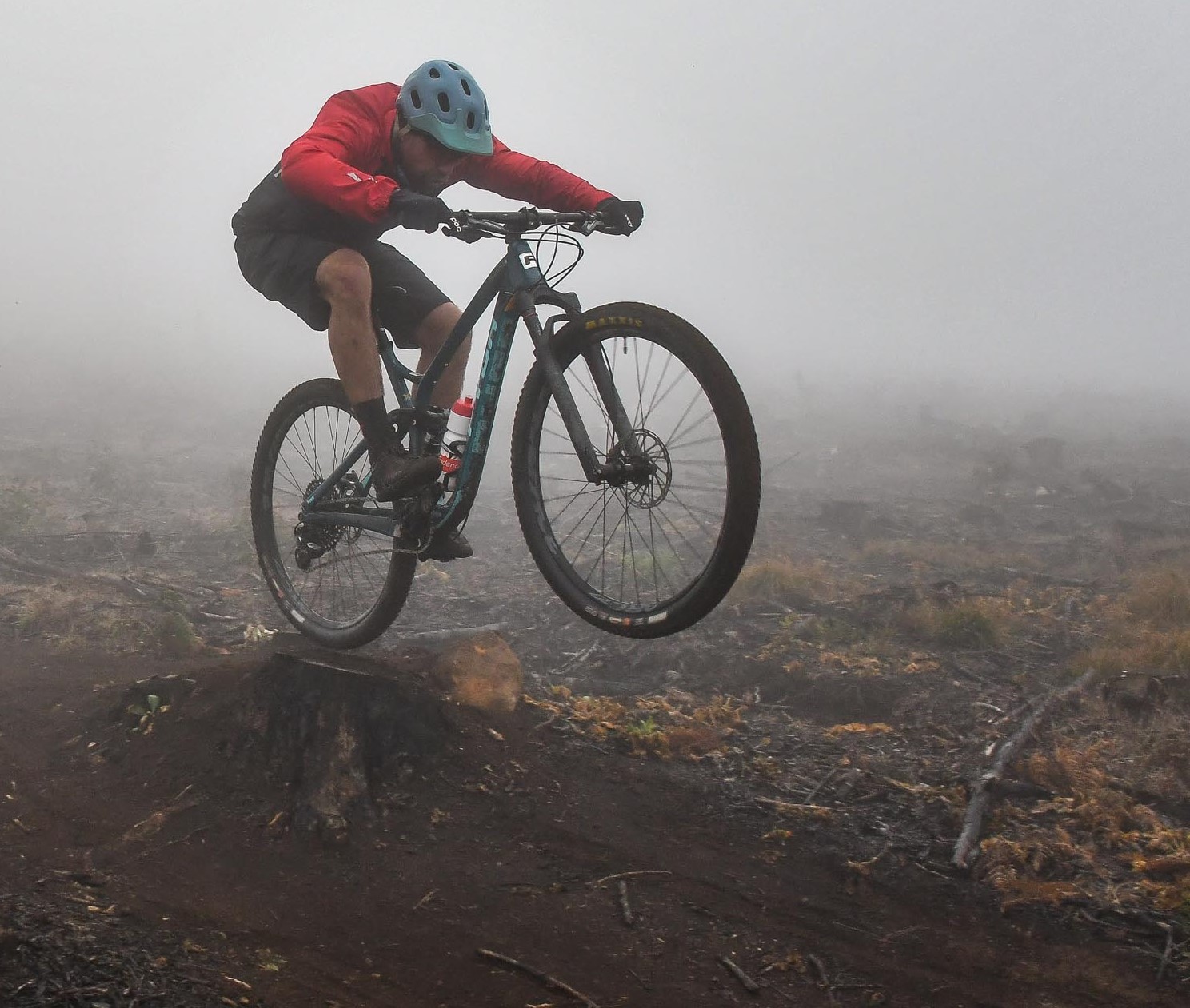
Lance Branquinho is a Namibian-born journalist who graduated to mountain biking after injuries curtailed his trail running. He has a weakness for British steel hardtails, especially those which only run a single gear. As well as Bike Perfect, Lance has written for MBR.com, Off-Road.cc and Cycling News.
